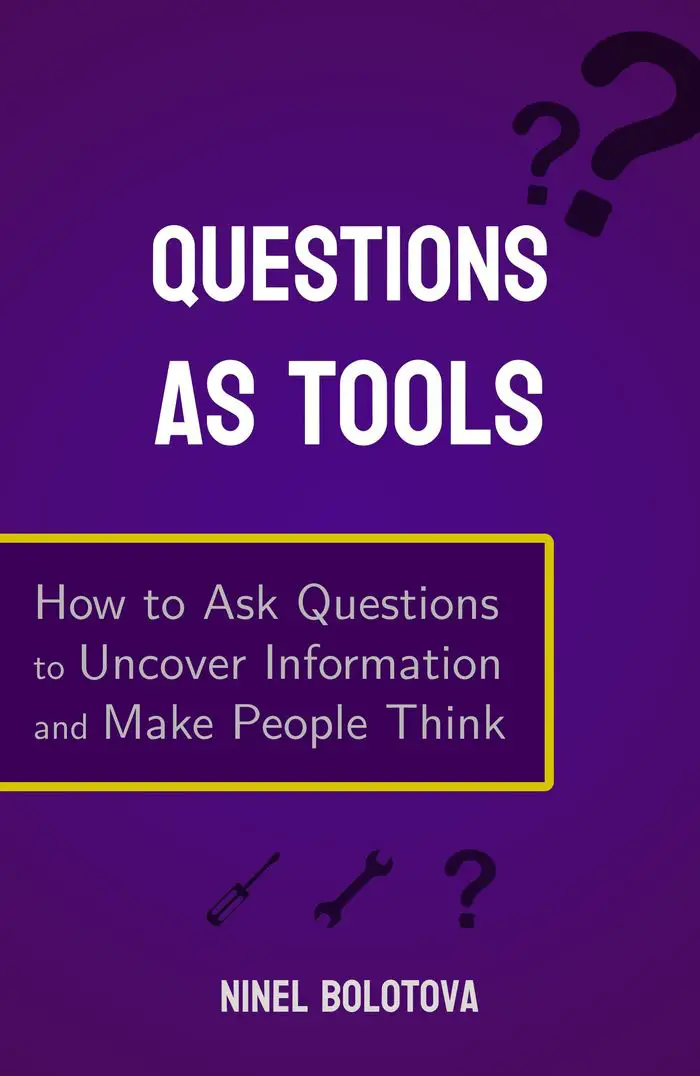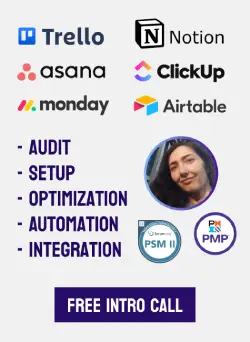Is PMP Certification Worth It in 2026? Costs vs. Benefits
Project Management Professional certification is the most recognized PM credential worldwide.
You most likely saw the PMP abbreviation way before you started looking into obtaining a certification, and probably even before you took on a project management role.
As the world adopts Agile approaches more and more, you might be wondering: is PMP still relevant?
The short answer is “yes”. The certification issuer, PMI, constantly adapts. With the recent exam modifications and the introduction of a flexible pricing structure, taking the PMP exam is a great option for anyone who fits the eligibility requirements.
If you’re convinced, feel free to move on to the PMP exam preparation guide.
Or keep reading to get a detailed breakdown of the benefits and costs of getting PMP-certified and to see how PMP compares to other project management certifications.

photo by @olly on Pexels
How did PMP become popular?
Project Management Institute is a very established organization. PMI was founded in 1969 as a platform for exchanging solutions, coordinating research efforts, and fostering professional standards in project management.
The first PMP certification exam was held on October 6, 1984, in Philadelphia.
PMP was the only credential offered by PMI for nearly two decades, until an entry-level one, Certified Associate in Project Management (CAPM), was introduced in 2003.
Since then, the PMI certification portfolio expanded to include over a dozen credentials for Waterfall and Agile project management.
Is PMP Agile?
For many years, the PMP certification was about traditional, plan-based project management.
But the exam is regularly updated to reflect modern trends and best practices. The current version of the PMP exam, introduced in early 2021, is much more Agile-oriented.
There are questions about specific practices like Scrum, but most importantly, you need to approach the questions with an Agile mindset.
Related: How to develop an Agile mindset.

Does the PMP certification improve salary?
“What is a PMP salary” is a common question.
While the exact numbers vary depending on the region, the industry, and other factors, a PMP holder’s salary is around 30% higher than their non-certified colleagues.
Does it mean that you get a 30% salary boost once you pass the PMP exam? Of course, we realize it doesn’t work like that. At what point does the PMP credential improve your salary, then? What factors influence it?
Why do PMPs have higher salaries?
- They earned more even before becoming a PMP
First of all, let’s keep in mind that PMP requires a minimum of three years of work experience. So, by definition, people who obtain it are established professionals and are likely to learn more, on average, than people who aren’t yet qualified for PMP.
- Expanded career opportunities
If you’re aiming to move into a higher-paying and more advanced role in your organization, obtaining a credential would give you the confidence and the leverage to pursue the position.
Getting a credential also makes you a more lucrative candidate for hire. You could pursue higher-level positions and negotiate a higher salary if you have proven yourself as a Project Management Professional.
- Personal skills at play
It’s not only about the badge. Someone with the will and the skills required to obtain the certification would also use those skills in their work environment, growing as a professional and improving their position over time.

photo by @emmy-e on Pexels
5 benefits of obtaining the PMP certification
1. Preparing for the PMP exam expands your knowledge
The new information, insights, and skills you gain while preparing for an exam are one of the biggest reasons why getting a professional certification is worth it.
2. Passing the PMP test gives a mental and emotional boost
Many people who passed the PMP exam recounted what an elating experience it was to see the result and see all your hard work culminate in success.
PMP is a challenging test, so preparing for it is a great mental exercise, and passing it gives an extra boost to confidence and self-esteem.
3. PMP improves your resume and helps with getting a job
When you’re evaluated as a job applicant, the most important factor is your professional experience: projects you managed, positions you held, and problems you solved.
But adding the valuable PMP credential to your resume gives you the edge. For many positions, it’s preferable – or required – to have the Project Management Professional certification.
A credential on your CV is a shortcut to confirming a certain level of experience and professional expertise.
It takes time, money, and determination to prepare for and successfully pass the certification exam and to maintain your certification afterward. Having PMP on your resume indicates that you’re willing to keep learning and investing in your professional growth.
4. PMP certification could lead to a salary increase
With your improved resume, you get more career options. Taking on a higher role in your organization or successfully applying for a role in another company will lead to a salary boost.
5. Maintaining PMP keeps you in professional shape
Once you obtain your certification, you need to renew it every 3 years. This requires submitting Professional Development Units that you could earn via various professional and learning activities.
Performing educational activities and improving your skills is something we should be doing either way, but having to earn PDUs gives you a bonus nudge.

photo by @ivan-samkov on Pexels
Costs of getting PMP-certified
1. PMP exam certification fee
Starting from early 2023, PMI diversified the fees of their exams, membership, and other products. The exam price used to be $405 for PMI members and $555 for non-members, but now the price depends on the country you’re based in.
Check the PMP exam page to see what the price is for your country.
But no matter what the exam and membership costs are in absolute terms, the formula remains unchanged:
A year of PMI membership + the certification exam fee = the exam fee for non-members.
2. Costs of preparing for the PMP exam
One of the PMP certification prerequisites is having 35 contact hours dedicated to studying project management.
There are various courses that offer to fulfill these hours. The most popular and affordable option is the PMP exam prep course by Andrew Ramdayal. The course goes over all the exam domains.
You would need an exam simulator to practice. The official PMP mock exam costs $99 and contains a pool of 250+ questions. There are also third-party options: for example, this PMP exam simulator on Udemy costs $30 (or less on promotion) and contains three 180-question mock exams.
You could also read various books and articles on the subjects from the PMP Exam Content Outline.
An important point is developing an Agile mindset. Most of the exam questions are scenario-based, and some of the options seem very similar. The Agile mindset will help you understand the nuances and pick the correct one.
Scrum.org has a free Scrum Master Learning Path full of articles and webinars. It will help with getting into an Agile headspace.
Related: Actionable advice on developing an Agile mindset.
Learn more about the options for exam preparation in my guide to preparing for the PMP certification.
3. PMP maintenance costs
The PMP renewal fee has to be paid once in three years, and the cost depends on your membership status. Since 2023, it most likely also depends on your region.
You could submit the renewal fee and extend your PMP certification once you logged the 60 PDUs needed for the 3-year cycle.
There are various free and paid ways of earning PDUs. Currently, there’s no cap on self-educational units, so you could theoretically earn all 60 by watching and reading free project management materials provided by PMI.

photo by @rodnae-prod on Pexels
How PMP compares to other project management certifications
PMP vs. PRINCE2
PRINCE2 (Projects In Controlled Environments) by Axelos is another well-recognized project management certification based on the PRINCE2 method.
They were more comparable when PMP was firmly rooted in traditional, Waterfall project management. But as the PMP exam changes with time to reflect newer trends, the PRINCE2 method remains the same, thus the rift between them grows.
See an article dedicated to comparing PMP and PRINCE2 certifications.
PMP vs. CAPM
Certified Associate in Project Management certification subject areas are similar to PMP, but it doesn’t have the work experience requirements.
If you’re new to project management but want to get all the benefits of preparing for the professional PM exam and obtaining a certification from a well-recognized institute, CAPM is a great choice.
Related: How to prepare for the CAPM certification exam.
PMP vs. PMI-ACP
Initially introduced in 2011, the Agile Certified Professional certification by PMI was very different from the Waterfall-based PMP.
A decade later, with the 2021 PMP exam change towards agility, the lines are blurred. The PMI-ACP exam still gets deeper into Agile-specific topics like Lean, extreme programming, and test-driven development.
But since PMP is half-Agile now, would it make sense to opt for PMI-ACP?
PMI-ACP has a much lower work experience threshold than PMP – only 8 months of Agile project experience or 12 months of general project experience.
If you work in an Agile environment and don’t yet qualify for PMP, obtaining the PMI-ACP certification would be a good option.
PMP vs. PSM
Professional Scrum Master certification focuses on the Scrum Master role and implementing Scrum in an organization.
If you’re not sure if Scrum mastery is relevant for you, check out an article on whether the Scrum Master role is a good fit for your personality.
For that matter, you could double-check if the project management role is a good fit for you, too. I’m sure it is, but we need to be conscious about our choices.
For more information about Scrum certifications, see my guides to choosing the right level of PSM for you and preparing for the Professional Scrum Product Owner exam.

 Ninel Bolotova, PMP, is a workflow expert setting up and automating processes in ClickUp, Trello, Notion, Monday and other PM tools. She enjoys challenges related to process setup, automation and optimization.
Ninel Bolotova, PMP, is a workflow expert setting up and automating processes in ClickUp, Trello, Notion, Monday and other PM tools. She enjoys challenges related to process setup, automation and optimization.